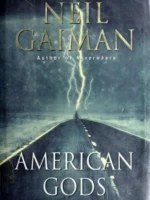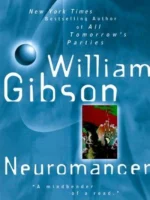Ender’s Game, Orson Scott Card, 1985
- Author: Orson Scott Card
- Genre: Sci-Fi/Fantasy
- Publisher: Tor Books
- Publication Year: 1985
- Pages: 324
- Format: Paperback
- Language: English
- ISBN: 978-0812550702
- Rating: 4,3 ★★★★★
Ender’s Game Review
About
First published in 1985, Orson Scott Card’s Ender’s Game is a landmark in science fiction—a story of military genius, manipulation, and the loss of innocence. It combines the logic of a strategy novel with the moral gravity of a tragedy. What makes it endure isn’t the space battles but the boy at its center: brilliant, lonely, and used by a system that calls cruelty necessity.
Overview
In a future where Earth fears another alien invasion, children are recruited into Battle School—a military academy orbiting the planet, where war games decide humanity’s future leaders. Andrew “Ender” Wiggin is a prodigy: compassionate yet ruthless, shaped by isolation and endless pressure. His teachers manipulate him into becoming the perfect commander, blurring the line between simulation and reality. Beneath the strategy and spectacle lies a chilling question: can empathy survive when war rewards its absence?
Summary
(light spoilers) Ender rises through the ranks by outthinking not just the enemy but the system itself. He wins through creativity and empathy—traits the adults exploit while pretending to train him. The battle games grow harsher, friendships thinner, and the isolation deeper until his final “simulation,” where he unknowingly commands real fleets in a real war. His victory—annihilating the alien Formics—is both triumph and horror. After learning the truth, Ender rejects the role of savior and seeks redemption, discovering a surviving alien queen egg and vowing to protect her. The story ends with guilt transformed into purpose—a lonely boy choosing peace over glory.
Key Themes / Main Ideas
• Childhood and control — innocence weaponized by authority.
• Empathy as strength — understanding the enemy to the point of loving them.
• Isolation — greatness built on loneliness.
• Morality of war — victory as a kind of loss.
• Leadership — compassion clashing with obedience.
Strengths and Weaknesses
• Strengths — Intense pacing, clear prose, and psychological depth uncommon in military sci-fi.
• Strengths — The moral twist redefines the entire narrative in retrospect.
• Weaknesses — Supporting characters can feel schematic; emotional trauma is sometimes rushed past.
• Weaknesses — Philosophical weight may surprise readers expecting straightforward action.
Reviewed with focus on themes, audience, and takeaways — Orson Scott Card
| pa_author | Orson Scott Card |
|---|---|
| ISBN | 978-3-240-33618-7 |
| pa_year | 1958 |
| Pages | 332 |
| Language | English |







